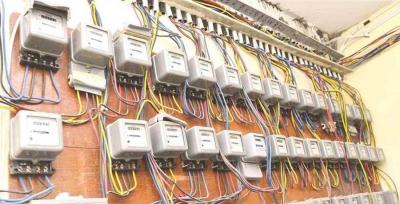After nearly 30 years of a fixed electricity rate, the Electricité du Liban institution was informed by the Minister of Energy and Water in the caretaker government, Walid Fayyad, about the implementation of the new electricity tariff. Consequently, citizens must now monitor their electricity consumption as they do with generator electricity, as the bill will become painful. The era of the 1,500 Lira dollar rate, established in the 1990s, which calculated the cost of kilowatt-hour at 135 Lira, has ended. Citizens should mentally and practically prepare for an electricity bill with six zeros.
The new tariff, which has come into effect, will charge 10 cents for the first 100 kWh and 27 cents for each additional kWh beyond that. Additionally, there will be a fixed monthly charge of 21 cents per ampere and $4.3 for rehabilitation costs. Tariffs will be calculated in Lira according to the "Sayrafa" exchange rate and will be linked to the global oil price index.
According to the proposed electricity plan, this tariff will be adjusted every month or two, depending on the average price on the Sayrafa platform and the actual production costs based on global oil prices over the past month or two. Furthermore, this 27-cent rate for kilowatt-hour will only apply if two conditions are met: first, the state must cover the full cost of purchasing Iraqi oil, estimated at about $460 million, without this cost falling on Electricité du Liban; second, the state must pay the total costs of energy bills consumed by ministries and the public sector monthly, estimated at around $200 million, equivalent to 5,000 billion Lira at the Sayrafa exchange rate.
Failing to meet these conditions will lead to an additional increase in energy selling prices of about 10 cents per kilowatt-hour, raising it from 27 cents to 37 cents per kilowatt-hour. In this case, there is no doubt that the bills will be higher than those stated above.
The following question arises: Has it been made clear what tariff Electricité du Liban will apply for the second part of the bill, the 27 cents or the 37 cents? Will this tariff apply to all residents of Lebanese territory, meaning that meters will be taken from all regions, or will there still be favored individuals able to evade payment and infringe upon the network as has been the case since the 1990s?
In this context, sources within Electricité du Liban confirmed to "Al-Joumhouria" that the institution was informed by the Minister of Energy late the day before yesterday about the implementation of the new tariff starting from the beginning of the current month, based on directives from Prime Minister Najib Mikati. Thus, employees were informed yesterday about the new instructions and will commence today with the task of photographing the meters to start applying the new tariff, with the first bills from this tariff not being issued until February and March 2023.
The sources confirmed that Electricité du Liban is ready to apply the new tariff and has already prepared an operational plan for this, involving the removal of infringements and improving collections, preparing the electronic center for issuing new bills, and a plan for plant maintenance. Regarding which tariff will apply for consumption exceeding 100 kWh—the 27 cents or the 37 cents—sources assert that initially, pricing will start according to 27 cents because there is an intention to give the state a grace period for payment, as it might cover its obligations. However, should this not happen, the 37-cent tariff will be adopted.
The institution informed the state that the cost of Iraqi fuel for the current year, 2022, falls on it at a cost of $230 million. The institution also requested that the promised fuel cost for 2023 be covered by the state. If the state fails to respond, the institution will be compelled to raise tariffs for citizens. Additionally, the state must provide contributions to water interests, and it is unacceptable for the Ministry of Finance to shirk this responsibility; otherwise, we will have to cut electricity to them. The state must also pay its share concerning wastewater treatment plants and Palestinian refugee camps, and appropriations must be allocated for public administrations.
Regarding the available fuel, the sources clarified that a fuel shipment from Iraq arrived in Lebanon approximately two days ago, delivering around 30,000 tons of fuel to the Zahrani plant. Consequently, power was restored in some areas. However, this quantity is insufficient, as the production capacity will not exceed 200 megawatts. The anticipated steps that will significantly improve supply and increase it to between 8 to 10 hours are the three tenders recently announced by the Energy Ministry for purchasing fuel for Electricité du Liban. Nonetheless, hopes remain pinned on the Central Bank of Lebanon adhering to the promise of transferring funds according to the Sayrafa platform and for the ministries of Interior, Defense, and Justice to assist in the issue of removing infringements.




